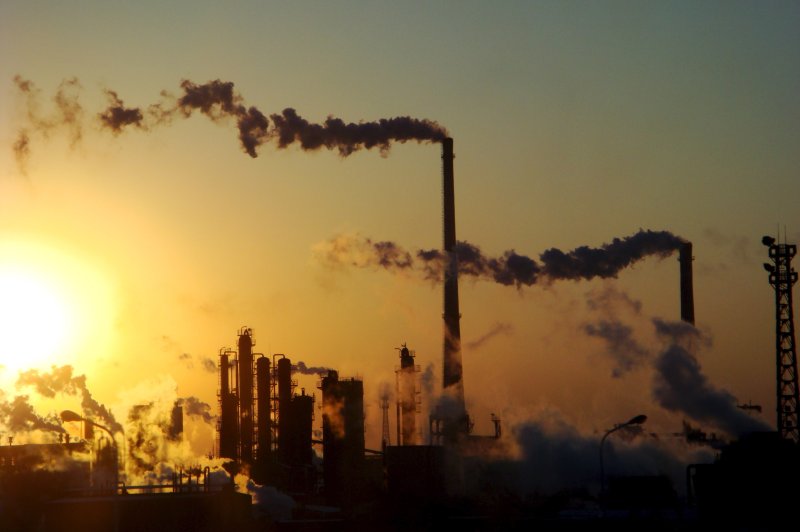
Authors of a peer-reviewed study urged the federal government to move quickly on regulations meant to curb some of the emissions coming the oil and gas sector. More than $70 billion in health-related costs are associated with these emissions, they said. File photo by Ryan Tong/EPA-EFE
May 8 (UPI) -- Pointing to the billions of dollars of what they said are health-related costs associated with pollution from the oil and gas industry, researchers called on the federal government to hurry up with new regulations to prevent further ailments in a study released Monday.
"Curbing oil and gas emissions is one of the fastest, most cost-effective ways to reduce methane and other air pollutants, which improves air quality, protects public health and slows climate change," said study co-author Ananya Roy, a senior researcher at the Environmental Defense Fund, in a news release.
Roy was joined by scientists at Boston University and the University of North Carolina in writing details abut their study in the journal Environmental Research: Health, which suggests air pollution from the oil and gas sector has a "substantial" impact on public health.
The federal government early last year outlined a global plan along with the European Union that aims to reduce methane by 30% from a 2020 baseline by 2030.
Part of that effort includes $1.15 billion to clean up abandoned oil and gas wells, and another $1 billion to modernize the existing natural gas pipeline network.
The Environmental Protection Agency, meanwhile, introduced proposals in November to strengthen existing regulations on methane emissions. Roy said it was "critical" that the EPA finalizes its rules as soon as possible.
Methane is a potent energy carrier, but as a greenhouse gas, it has a greater warming potential than carbon dioxide.
Elsewhere, scientists said nitrogen oxide, fine particulate matter and ozone from the oil and gas sector contributed to more than 7,500 deaths and 2,200 new cases of childhood asthma. The health challenges alone account for $77 billion in costs each year, they wrote.
"The health impacts are not just from the combustion of oil and gas," said Boston University's Jonathan Buonocore, a corresponding author of the study.
The Energy Information Administration, the statistics arm of the Energy Department, estimated in its monthly market report for April that energy-related emissions of carbon dioxide decline by 3% relative to 2022 levels, but then increase "slightly" in 2024.
The EPA, meanwhile, shows that emissions for most major greenhouse gases, including methane, most likely peaked in 2007, based on 2020 data.
No comments:
Post a Comment